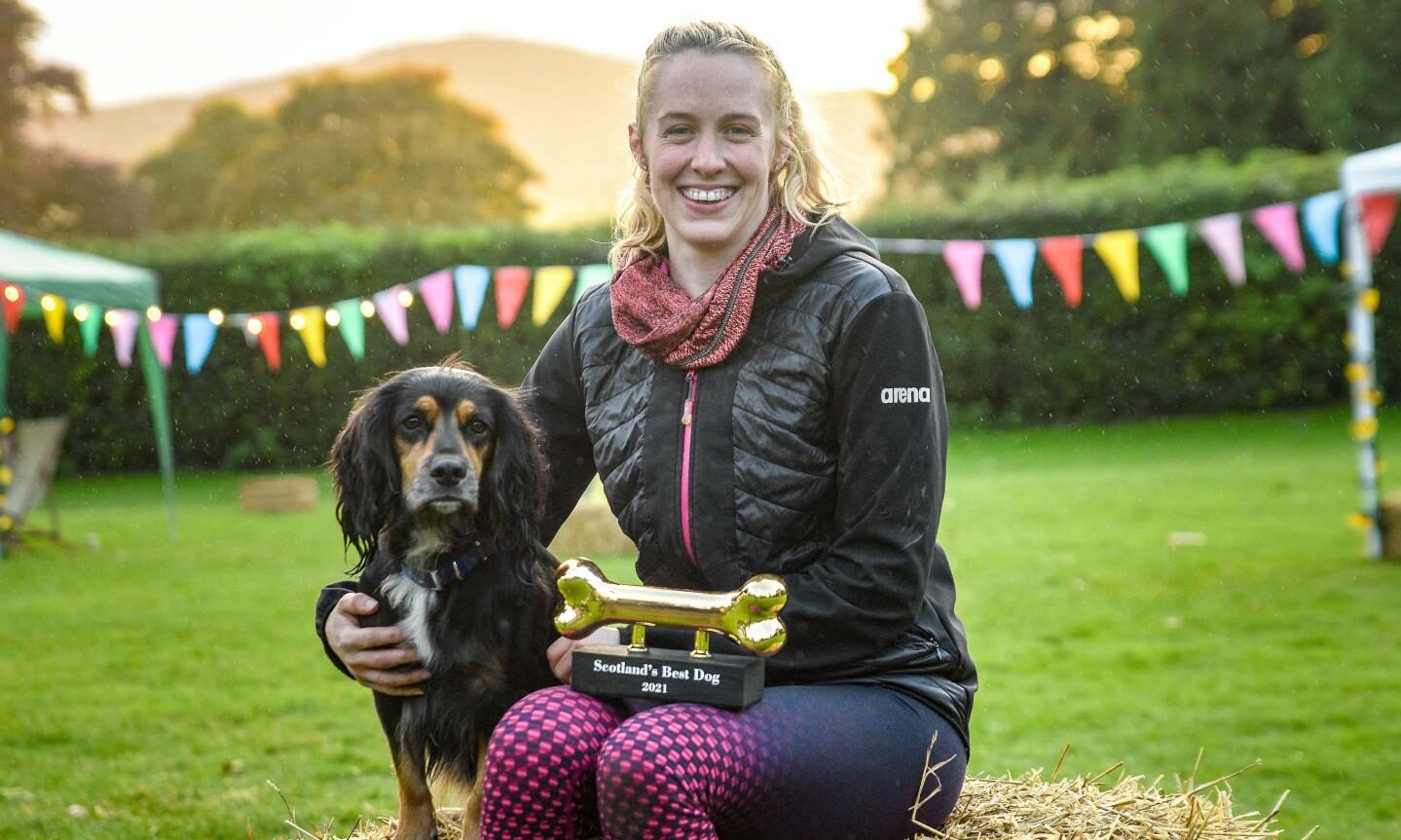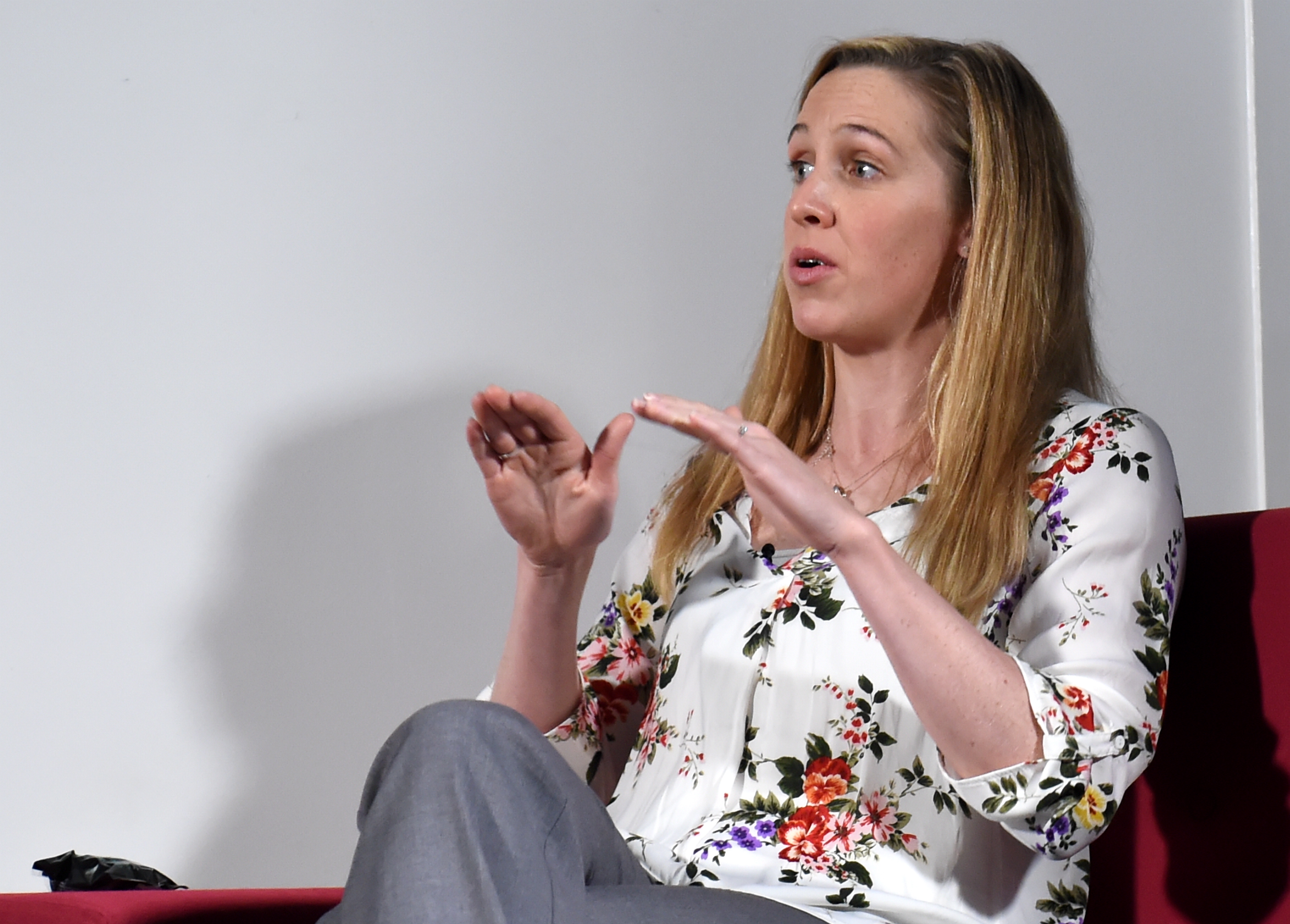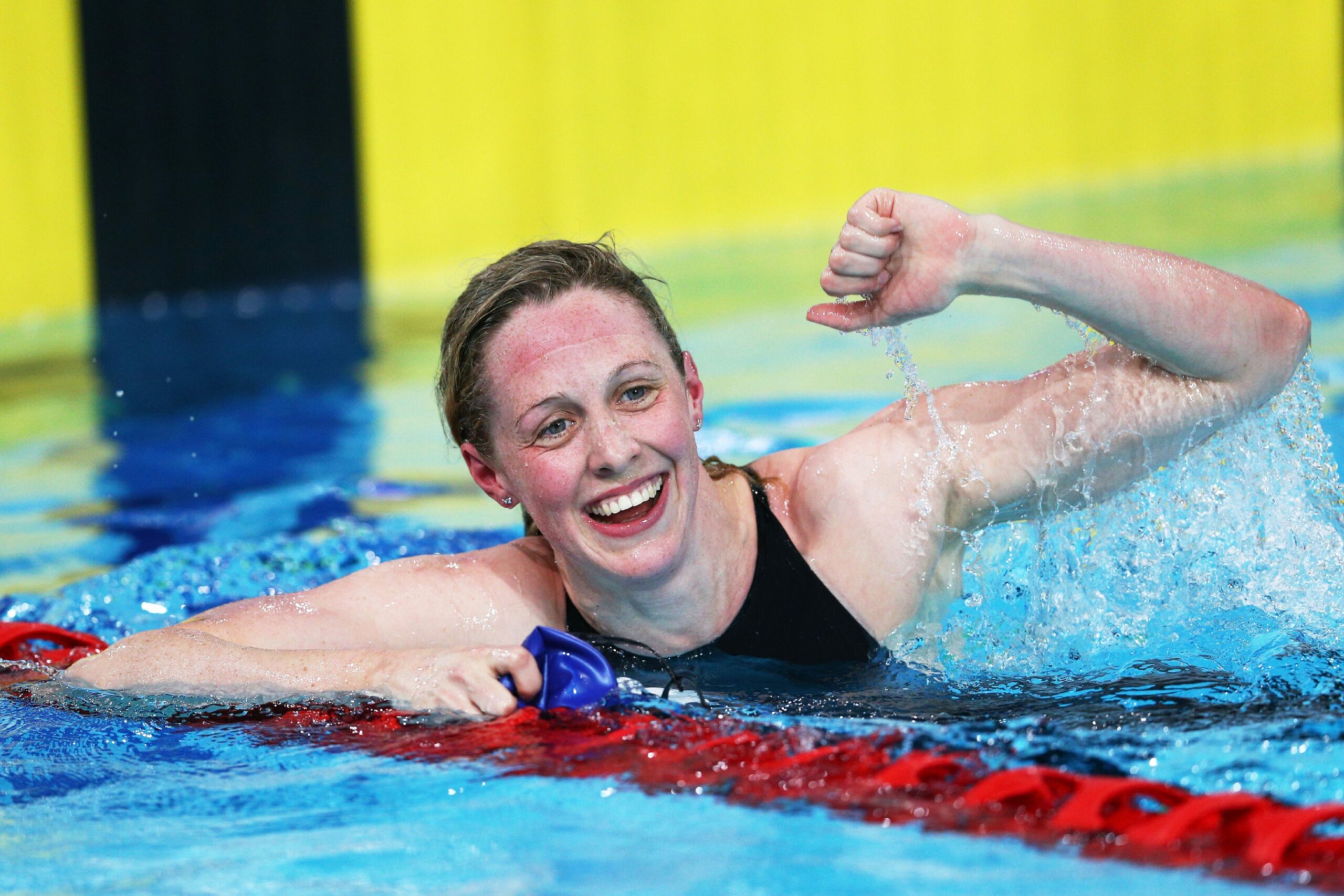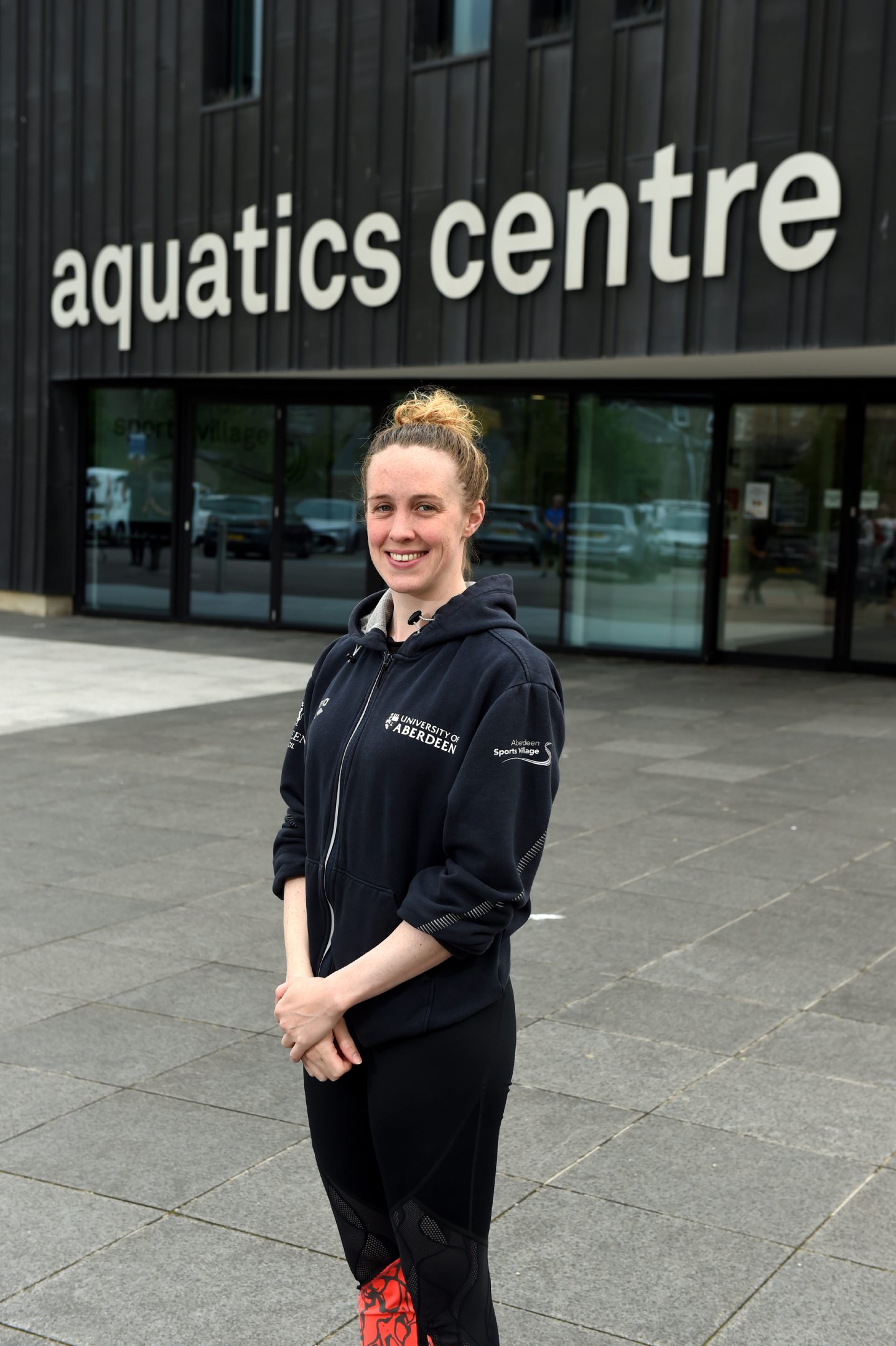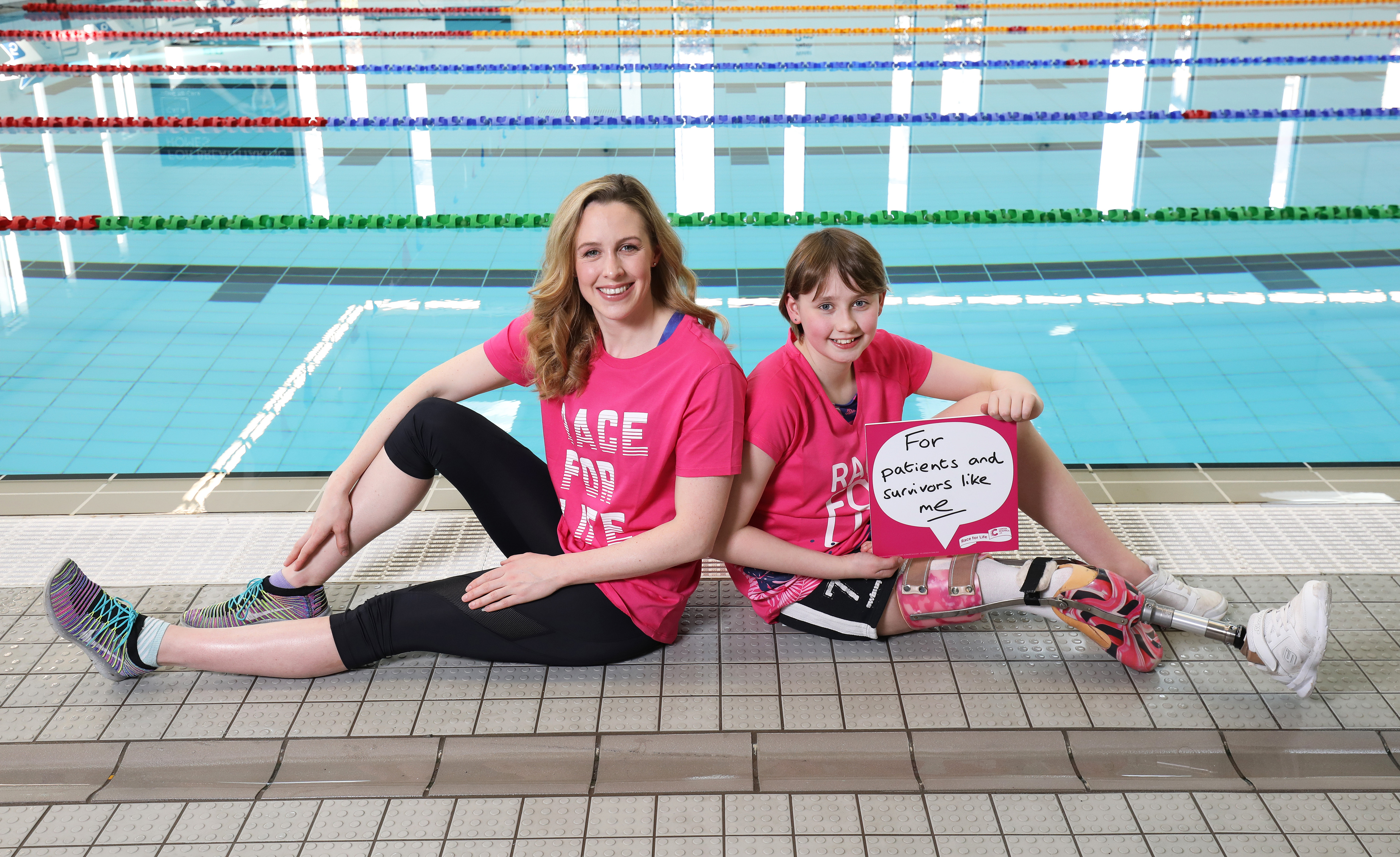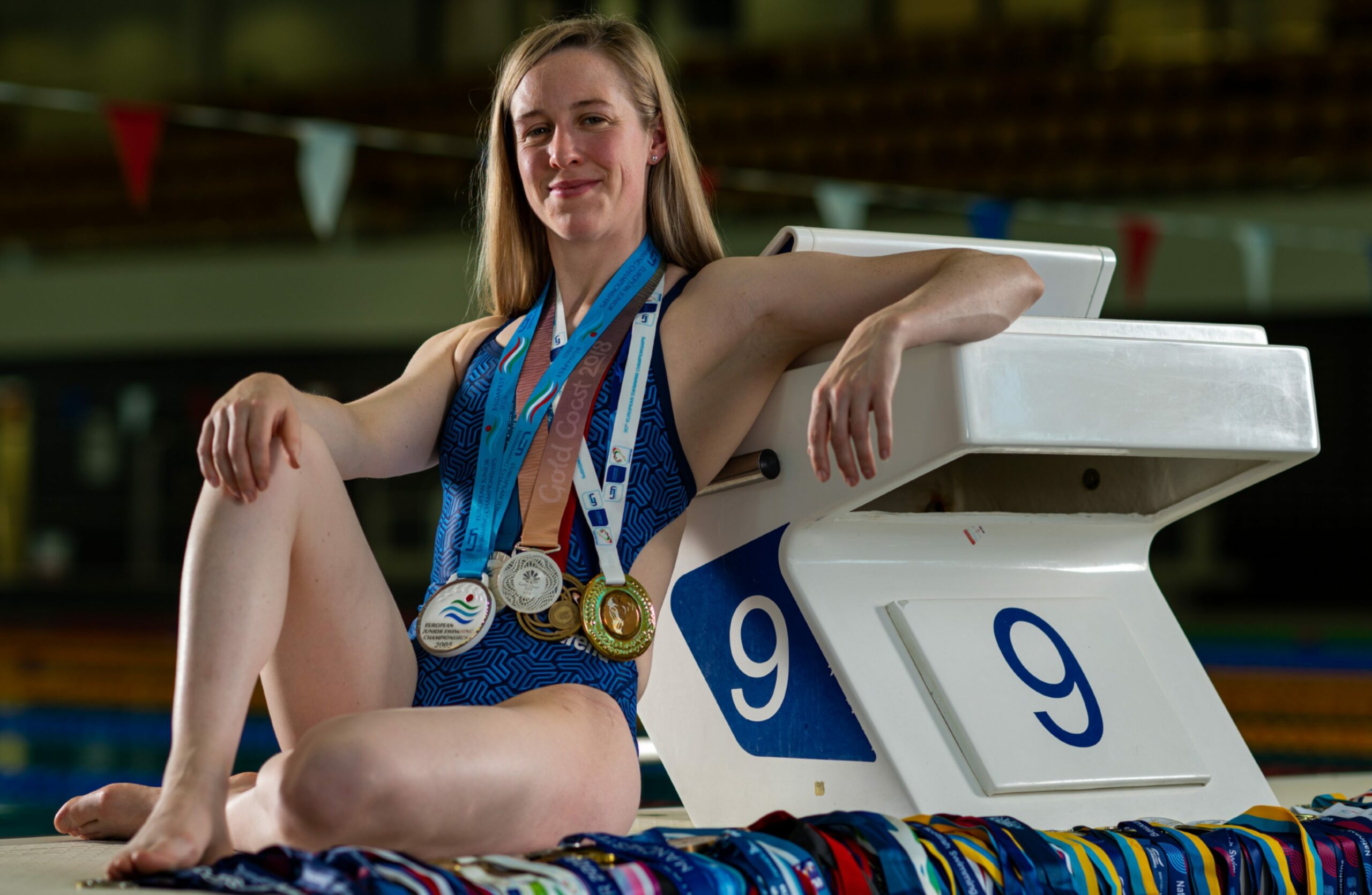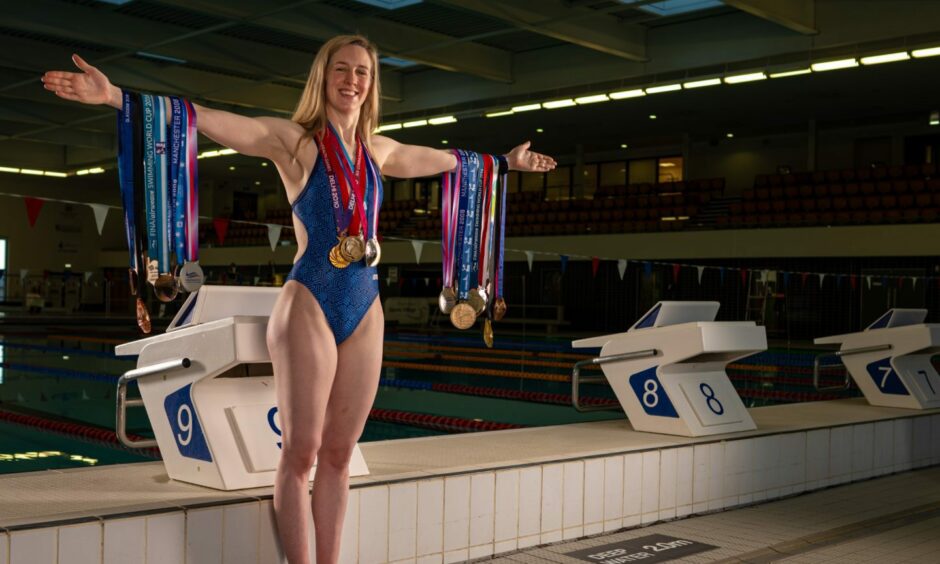
Hannah Miley is one of Scotland’s greatest international swimming competitors and has never stopped fighting for new facilities to encourage future champions.
There’s not much the 33-year-old didn’t achieve during her accolade-strewn swimming career, whether in surging to back-to-back gold medals in the Commonwealth Games in Delhi and Glasgow in 2010 and 2014, adding a slew of European and world titles, and appearing at three Olympic Games from 2008 to 2016, where she finished sixth, fifth and fourth in the 400m individual medley.
The Inverurie star has even come to terms with her initial disappointment at being pipped for a podium place in Rio and told me: “As athletes, we feel that we need the medals to validate whether we are deemed good enough.
“However, that fourth place taught me that I am still worthy as an athlete and a person, and I’m proud of my performance. There was nothing more I could have done to improve the outcome, three other athletes were just that little bit better on the day.”
She may be philosophical, but there are other issues she wants to talk about, including the worrying trend of local authorities shutting down sporting facilities and slamming the door on the new breed of Mileys, Michael Jamiesons and Duncan Scotts.
Concern over cuts
Hannah happily admits she benefitted from new venues and facilities, whether in Inverurie or the Aberdeen Aquatics Centre, or across Britain at the start of the 21st century. Yet she isn’t sanguine about recent developments with most local authorities struggling to balance the books and bringing the axe down on sporting venues.
The UK’s elite performers have stamped their mark on the global stage in recent years, but that success could be stymied if the new generation don’t have places to train – and Hannah isn’t only concerned about the impact of the cuts on those at the top.
She said: “There is a great wave of swimmers coming through, but they are facing a lot of challenges. Having gotten through lockdown, swimmers paid a huge price, because there was no access to a pool and we envied those who could run or cycle.
“The closest I could get to swimming was my bath!
“Some had great out-of-the-box thinking and bought paddling pools with bungee cords. It was wonderful seeing so many try and do what they could to remain active during such a challenging couple of years.
We could lose the next generation
“But we are seeing a host of pools being closed due to the cost-of-living crisis and the cost of running a pool is expensive. If we lose the pools, then we could potentially lose the potential of the next generation of top-level swimmers coming through.
“Young kids will be unable to get access to learn-to-swim programmes and swimming is not just a sport, it is a life-saving skill. I think it’s like riding a bike, because once you learn how to swim, it stays with you. And especially, when we hit the warm summer weather, everyone flocks to the water, so it’s important to remain safe.
“It’s a tentative time for the future of Scottish swimming, but I think we can pull through. It’s challenging and there will be many other barriers, but what could happen is we will see some incredibly resilient and resourceful athletes taking on the best in the world. We just need to support them and the facilities as much as we can.
“Scotland has a history of producing world-class swimmers and I would love to see that continue in the future. So long as we don’t see any more facilities having to close down, we could see a very strong team for the Commonwealth Games in 2026.”
Periods still taboo in sport
One might wonder why this issue should prompt so many hushed silences and awkward exchanges, given that it affects half the population, but there are still officials and governing bodies who would prefer a Trappist approach to talking about it.
And yet, as Hannah said: “Back in 2015, [British tennis player] Heather Watson stated that periods were the last taboo in sport. Eight years on and we are still saying the same thing? So what are we doing to make the change?
“Periods are a natural and important part of being female. As an athlete, that balance between health and performance is important. Periods get a bad rap in that there are very few positive words associated with them, but is it any wonder why it’s not talked about if the association is negative, or that it’s inconvenient and a hassle?
“Understanding the impact is important for the athletes to look after their health to help maximise their performance and not run themselves into the ground risking injury, illness and cutting their career short.
“There are many conditions that can put an athlete’s career on hold or cut it short like amenorhhea [missing a period] or RED-S [relative energy deficiency in sport].
It starts with breaking down barriers
“There are Olympic athletes who have these conditions and have still been able to perform incredibly well, but they have a lot of care and support put into their training.
“No one should be held back by their hormones, so learning to work with your body, not against, it is key and having everyone on the same page. We all know or work with someone who menstruates, so it’s important that talking about periods is for everyone.
“We can unlock so much potential and it all starts with breaking down the barrier of just being able to talk and even say the word: period.”
I’ve never forgotten meeting Hannah before she launched her bid to retain her title at the 2014 Games. It was one of those occasions where many sporting figures feel uncomfortable in the limelight as they strive to mix humility with optimism.
But she was typically bubbly, loquacious and disarming – “I tend to waffle a lot” – while telling us how her preparations were going.
And it’s one of those memories which is immutably locked in her heart.
‘A wonderful feeling’
She said: “It was a super proud moment, not just being on the podium, but overcoming the pressure of having to perform on Day One and racing in front of a home crowd and achieving a wee piece of history will forever stay with me.
“It meant that I successfully defended my Commonwealth title and I became one of just three Scottish women to have ever done that before and got to join the legendary Helen McKay [nee Gordon] and Liz McColgan, so that was a wonderful feeling.”
Hannah has always been an inspirational character and her cv testifies to her qualities. But now, it’s clear she has moved on to a new chapter of her life, one where she has to focus on thinking more than just about herself.
She’s up for the challenge.
FIVE QS FOR HANNAH MILEY
- What book are you reading? I’ve just finished a crime thriller book The Girls Who Disappeared by Claire Douglas and am about to start The Female Body Bible by Baz Moffat, Bella Smith and Emma Ross.”
- Who’s your hero/heroine? [American Olympic champion] Misty Hyman.
- Do you speak any foreign languages? I have been known to speak spaniel to my young pup Mylo, she makes interesting noises and I reply back in a similar fashion.
- What’s your favourite music/band? I go through phases where I like songs rather than whole albums. At the moment, my go-to bands are Nothing But Thieves, Elephant Sessions and some indy pop songs on Spotify.
- What’s your most treasured possession? My Olympic ring. Even though I no longer compete, I feel a sense of pride when I wear it for special occasions.
